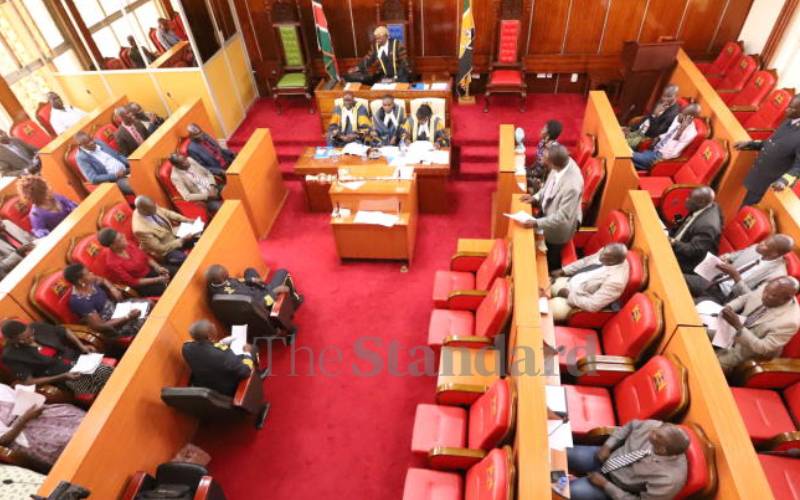×
The Standard e-Paper
Kenya’s Boldest Voice

Siaya County Assembly in session, August 29, 2019. [Denish Ochieng, Standard]
In the pre-2010 constitutional dispensations, being a councillor in Kenya was not a job any sophisticated politician wanted to associated with.